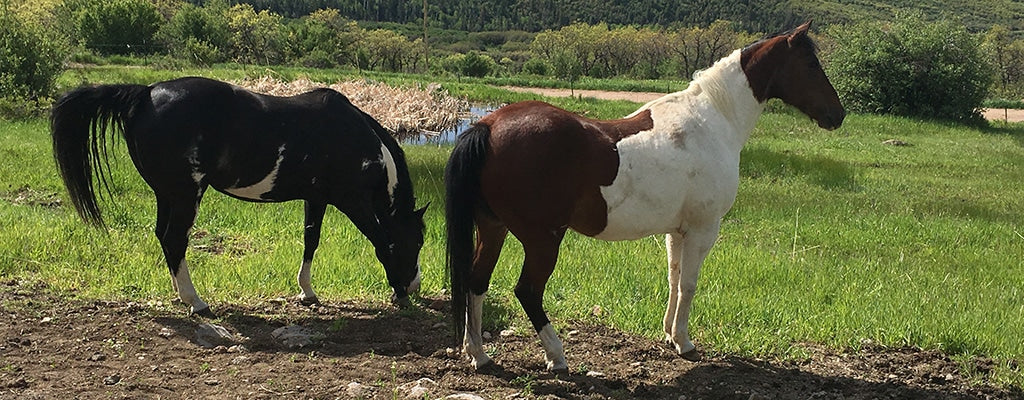
Coming Home To the Cabin
Horses remember experiences from long ago and as we headed out on highway 550 north of Durango CO, I was thinking how fast 11 years passes by. It had been 11 years since my horses had spent a summer at my family cabin outside of Glenwood Springs.
The first time Wylie lived at the cabin was in 1996 when I moved from Minnesota to Colorado. He also spent the summer of 2005 there recuperating from lameness. Now 20 years later he was retiring to 8,500 feet in elevation with lush grass, swaying aspens and natural spring water. In his 25 years he had spent uncountable hours climbing trails deep in Colorado’s wilderness, competing in endurance rides and giving me some of the best times of my life.
Like most animals a horse remembers food and water locations. When we arrived at the cabin I unloaded the horses from the trailer. Their body language indicated they were not the least bit worried – they knew right where they were. I put them in their 15 acre pasture and Wylie immediately found the water tank and then slowly walked over to the trail he remembered from years ago, and strolled down towards the flat, grassy piece of land. After several days I inspected their hang-outs, and several were the same as from many years ago.
Memory is important in all aspects of horse ownership. A horse that is abused or mistreated remembers the stimuli that may later trigger an unexpected reaction. A horse that has been raced may bolt forward when an arm goes back as they remember the crop on the racetrack. A horse that was hit in the head might be head shy when approached with a large object near the head. A horse that had a bad trailering experience may refuse to load in the future.
The important lesson about horse memory is to notice how your horse reacts to certain situations and to then use trust building horsemanship techniques to alter the reaction to the negative stimuli. Repetitive desensitizing has always worked well for me. For example if your horse is afraid of a crinkling plastic bag, then keep horse treats in that bag. Whenever you are making the rustling sound, give the horse a treat. From then on the scary bag will invoke a positive response.
When training your horse patience is a key factor in the development of new maneuvers. The release at the right time will help your horse figure out what you want and they will remember it in the next training session. Don’t get frustrated or angry during training sessions – it is not about emotions. If you need to, step back and take a breath, or wait for another day.
It is a beautiful time of year in Colorado. Wherever you are, get out there and make positive memories with your horse.
Thanks for reading! Happy trails from southwest Colorado.
Photo caption: Wylie, age 25, enjoying the same great views of Mt. Sopris that he saw as a 5 year old.
